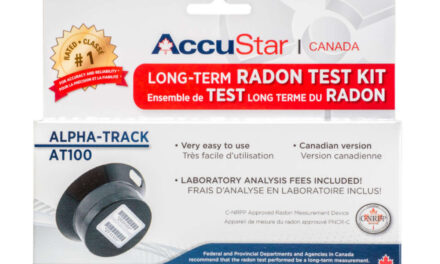Why You Need It and What’s Really Covered
Preface: This article provides readers with an in-depth look at title insurance and its significance in the home buying and selling process.
Introduction:
When you’re buying or selling a home, there are countless details to handle—inspections, offers, negotiations—but there’s one critical aspect of real estate transactions that often gets overlooked: title and title insurance. Did you know that a “clear title” can make or break your home purchase? If the title to the property isn’t clear, it could result in costly disputes, or worse, a lost investment. In this article, we’ll break down what title is, why title insurance is essential, and what’s truly covered in a title insurance policy. Understanding these elements can protect you from hidden risks and ensure a smooth transaction. Keep reading to discover how title issues can affect you, and how to safeguard your home purchase with title insurance.
What Is Title and Why Is It Important?
The title to a property is essentially the legal right to own and use that property. It proves that the seller has the right to sell the property and that you, as the buyer, will have full ownership once the transaction is complete. The title also reveals if there are any encumbrances, such as mortgages, liens, or disputes, that could interfere with your ownership rights.
In every real estate transaction, the title must be verified before the sale can proceed. If the title is not “clear,” it means that there may be issues that could hinder your ability to take full ownership of the property.
Why it matters:
Having a clear title ensures that no one else has a legal claim to the property you are purchasing. For example, if a former owner left unpaid property taxes or had an unresolved lawsuit against them, these issues could be tied to the property’s title and can affect your ability to sell it in the future.
What Is Title Insurance?
Title insurance is a type of insurance that protects both the buyer and lender from financial losses due to title defects, such as fraud, unpaid liens, or disputes over ownership. It provides coverage for risks that occurred before you purchased the property but might not have been discovered until after the sale.
There are two main types of title insurance:
- Owner’s Title Insurance:
This protects you, the buyer, against any title defects that might arise after the sale is completed. If a problem with the title arises, such as a claim by a previous owner or a forgotten lien, the owner’s policy will cover legal fees and financial damages. - Lender’s Title Insurance:
This policy protects the lender (the mortgage company or bank) in case any title defects come to light. It’s typically required by lenders when you take out a loan, but it doesn’t cover you as the buyer.
Why it matters:
Title insurance provides peace of mind by protecting you against issues that might arise after the purchase is complete. Without it, you could face financial challenges if a claim against the property is made. It’s one of the few insurance policies you buy that covers incidents that occurred prior to your ownership, rather than future events.
Common Title Issues and Risks
Understanding what could go wrong with a property title is key to appreciating the importance of title insurance. Here are some common title issues that can arise:
- Unpaid Mortgages and Liens:
If the previous owner had unpaid debts or mortgages against the property, these could be attached to the title. Without title insurance, you may be responsible for paying these debts. - Forgery and Fraud:
Forged documents, fraudulent signatures, or identity theft can result in the title being compromised. For instance, if someone fraudulently signs a deed to sell the property, the sale could be invalidated. - Unknown Heirs:
If the previous owner passed away and their heirs have not been properly identified or notified, they may later come forward with a claim to the property. Title insurance can protect you from these types of issues. - Boundary Disputes:
Sometimes, neighbors or other parties may dispute the boundaries of the property, claiming part of your land. This could lead to legal issues and potential loss of property. - Clerical Errors:
Mistakes in public records or documents, such as incorrect names, missed signatures, or misfiled paperwork, could result in a title dispute.
Why it matters:
These issues may not be obvious during a typical home inspection, and they could lead to significant legal battles. Title insurance helps safeguard your investment from hidden problems.
The Title Search: What’s Involved?
Before issuing title insurance, the title company will conduct a title search to examine public records and identify any potential issues with the property’s title. This search typically includes:
- Checking Ownership History:
The title company will look at the property’s ownership history to ensure the current seller has the legal right to sell it. Any discrepancies, such as the seller not actually owning the property, could be flagged. - Identifying Liens and Encumbrances:
A search will reveal any unpaid mortgages, property taxes, or other liens that might still be attached to the property. These debts must be resolved before the sale can proceed. - Reviewing Easements and Restrictions:
The search will also check for easements (e.g., rights of way for utilities) or other restrictions that could affect how you use the property. - Verifying Legal Descriptions:
The title company will ensure that the legal description of the property (boundaries and location) matches the public record.
Why it matters:
The title search helps uncover potential problems before you sign any papers. If issues are found, they can often be resolved before the transaction moves forward.
What’s Really Covered by Title Insurance?
It’s essential to understand exactly what title insurance covers, and what it doesn’t. Below is a breakdown of the common coverage provided by a typical title insurance policy:
- Covered:
- Outstanding Liens: Unpaid property taxes, mortgages, or other debts tied to the property.
- Fraud or Forgery: Protection against fraudulent transactions that might have occurred before you bought the home.
- Errors in Public Records: If clerical errors are found in property records that could affect your ownership.
- Undiscovered Heirs: Protection from claims by heirs who were not properly notified during the estate process.
- Not Covered:
- Post-Closing Issues: Title insurance doesn’t cover issues that arise after you’ve closed on the property.
- Zoning Laws: Title insurance doesn’t protect you from zoning law violations that restrict how you can use the property.
- Environmental Hazards: Environmental problems like toxic waste, mold, or radon are not covered by title insurance.
Why it matters:
Title insurance protects you from legal and financial challenges that may arise after you buy the home, but it’s not a catch-all for every potential issue. It’s important to understand what’s excluded so you can take additional steps to protect yourself.
How Much Does Title Insurance Cost?
The cost of title insurance varies depending on the property value, location, and type of policy you’re purchasing. On average, the cost of a one-time owner’s title insurance policy can range between $500 and $1,500, while the lender’s title insurance policy is generally less expensive. Many sellers cover the buyer’s title insurance, but this is negotiable during the sale process.
Why it matters:
While title insurance is an added cost, the potential financial protection it offers makes it a wise investment. It’s important to factor this into your budget when purchasing a home, and to shop around for the best rates.
When Is Title Insurance Not Necessary?
In some cases, title insurance may not be required, such as when buying a property outright with cash. However, in most real estate transactions, especially when financing a home, title insurance is highly recommended to avoid unforeseen issues down the road.
Why it matters:
Even in cash transactions, buyers are encouraged to obtain title insurance to protect their investment from potential issues that might arise in the future.
Conclusion: The Importance of Title and Title Insurance in Your Real Estate Transaction
Understanding the significance of title and title insurance is vital for anyone involved in a real estate transaction. Whether you’re buying or selling a home, knowing what title insurance covers—and what it doesn’t—can protect you from costly surprises.
So, what’s the real risk of not having title insurance? As you’ve learned, without title insurance, you could be left paying for title defects or legal battles that could potentially wipe out your investment. By securing title insurance, you’re giving yourself peace of mind, knowing that if any title issues arise, you won’t be left holding the bill.





